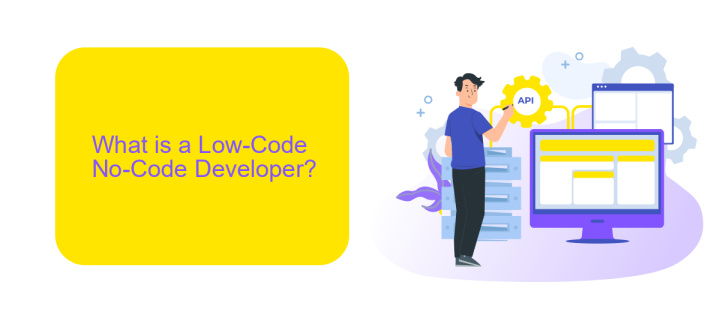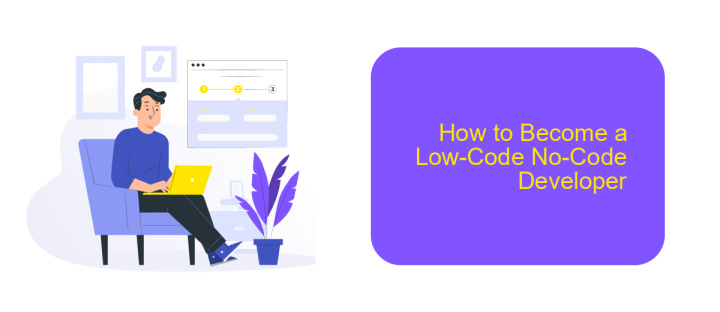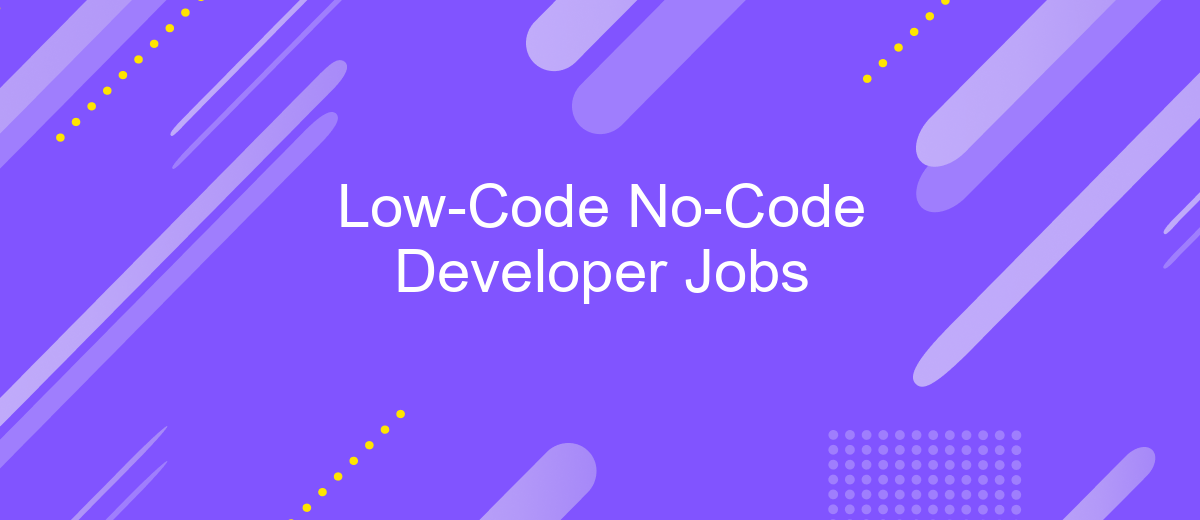Low-Code No-Code Developer Jobs
In today's fast-paced digital landscape, the demand for low-code and no-code developer jobs is surging. These roles empower individuals to create sophisticated applications with minimal traditional coding, democratizing software development. As businesses strive for agility and innovation, low-code and no-code platforms offer an efficient solution, making tech careers accessible to a broader range of talent.
Introduction
The rise of Low-Code and No-Code platforms is revolutionizing the way businesses approach software development. These platforms empower individuals with little to no programming experience to create functional applications, streamlining workflows and reducing the dependency on traditional developers. As the demand for rapid digital transformation grows, so does the need for professionals skilled in using these innovative tools.
- Accelerated development timelines
- Cost-effective solutions
- Enhanced collaboration between IT and business units
- Easy integration with existing systems
One of the key advantages of Low-Code and No-Code platforms is their ability to integrate various services seamlessly. Tools like ApiX-Drive facilitate these integrations, allowing users to connect different applications and automate workflows without writing a single line of code. This not only improves efficiency but also ensures that businesses can adapt quickly to changing market demands.
What is a Low-Code No-Code Developer?

A Low-Code No-Code Developer is a professional who leverages platforms and tools that require minimal to no traditional coding to create applications and automate processes. These developers use visual interfaces and drag-and-drop features to design and deploy software, making it accessible for individuals who may not have a strong background in programming. This approach accelerates development cycles, reduces costs, and allows for rapid prototyping and iteration.
One of the significant aspects of a Low-Code No-Code Developer's role is integrating various services and applications to streamline workflows. Tools like ApiX-Drive facilitate this by enabling seamless connections between different software systems without the need for extensive coding. This allows developers to focus on optimizing business processes and delivering value more quickly. By utilizing such platforms, Low-Code No-Code Developers can effectively bridge the gap between business needs and technological solutions.
Benefits of Low-Code No-Code Development

Low-Code and No-Code development platforms offer numerous benefits, making them an attractive option for businesses and developers alike. These platforms enable rapid application development, reducing the time and cost associated with traditional coding methods.
- Speed and Efficiency: With drag-and-drop interfaces and pre-built templates, developers can quickly create applications, significantly cutting down development time.
- Cost-Effective: Lower development costs as fewer specialized coding skills are required, making it accessible to a broader range of users.
- Flexibility: Easily modify and update applications without extensive re-coding, allowing for agile responses to changing business needs.
- Integration Capabilities: Services like ApiX-Drive facilitate seamless integration with various third-party applications, enhancing the functionality of your low-code or no-code solutions.
- Empowerment: Non-technical staff can participate in the development process, democratizing innovation within the organization.
These benefits make Low-Code and No-Code platforms a powerful tool for businesses looking to innovate quickly and efficiently. By leveraging these technologies, companies can stay competitive and responsive to market demands.
How to Become a Low-Code No-Code Developer

Becoming a Low-Code No-Code developer is an accessible and rewarding career path, especially for those who may not have a traditional coding background. The first step is to familiarize yourself with various Low-Code No-Code platforms such as AppSheet, Bubble, and OutSystems. These platforms provide intuitive interfaces that allow you to build applications with minimal coding.
Next, it's important to gain a solid understanding of the fundamentals of software development, including basic principles of design, user experience, and database management. Many platforms offer free tutorials and courses to help you get started. Additionally, consider joining online communities and forums where you can ask questions and share your progress.
- Learn the basics of Low-Code No-Code platforms.
- Understand software development principles.
- Take advantage of online tutorials and courses.
- Join online communities for support and networking.
- Experiment with building your own projects.
As you advance, you may need to integrate various services and APIs into your applications. Tools like ApiX-Drive can simplify this process by allowing seamless integration between different platforms. By continuously learning and experimenting, you'll become proficient in creating robust applications without extensive coding knowledge.
- Automate the work of an online store or landing
- Empower through integration
- Don't spend money on programmers and integrators
- Save time by automating routine tasks
Conclusion
As the demand for digital solutions continues to grow, the rise of Low-Code No-Code platforms is revolutionizing the tech industry. These platforms empower individuals with minimal coding experience to create robust applications, thus democratizing software development. This shift not only addresses the talent shortage in the tech industry but also accelerates the development process, enabling businesses to innovate faster and more efficiently.
Furthermore, integrating various services and automating workflows have become more accessible thanks to tools like ApiX-Drive. Such platforms simplify the process of connecting different applications, ensuring seamless data flow and operational efficiency. As a result, Low-Code No-Code developers are better equipped to build comprehensive solutions that can easily scale and adapt to changing business needs. In conclusion, the future of software development looks promising with the continued adoption of Low-Code No-Code platforms, opening up new opportunities for both businesses and aspiring developers.
FAQ
What is a low-code/no-code developer?
What skills are required for a low-code/no-code developer?
Can low-code/no-code developers create complex applications?
How do low-code/no-code platforms handle integrations with other systems?
Are low-code/no-code jobs in high demand?
Apix-Drive is a universal tool that will quickly streamline any workflow, freeing you from routine and possible financial losses. Try ApiX-Drive in action and see how useful it is for you personally. In the meantime, when you are setting up connections between systems, think about where you are investing your free time, because now you will have much more of it.


